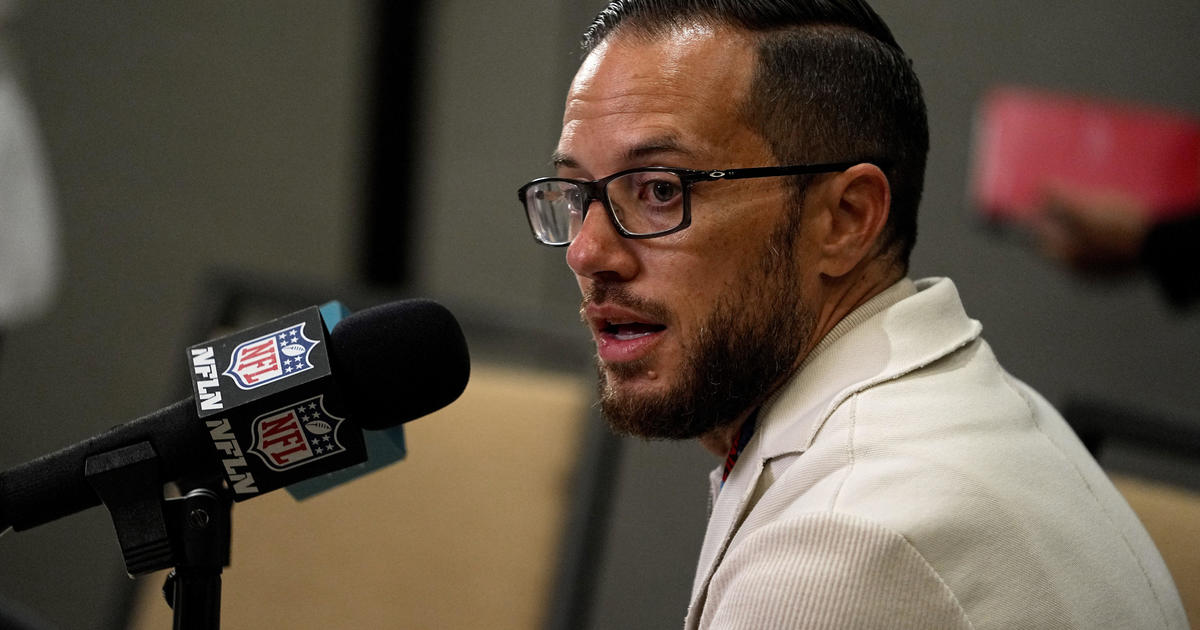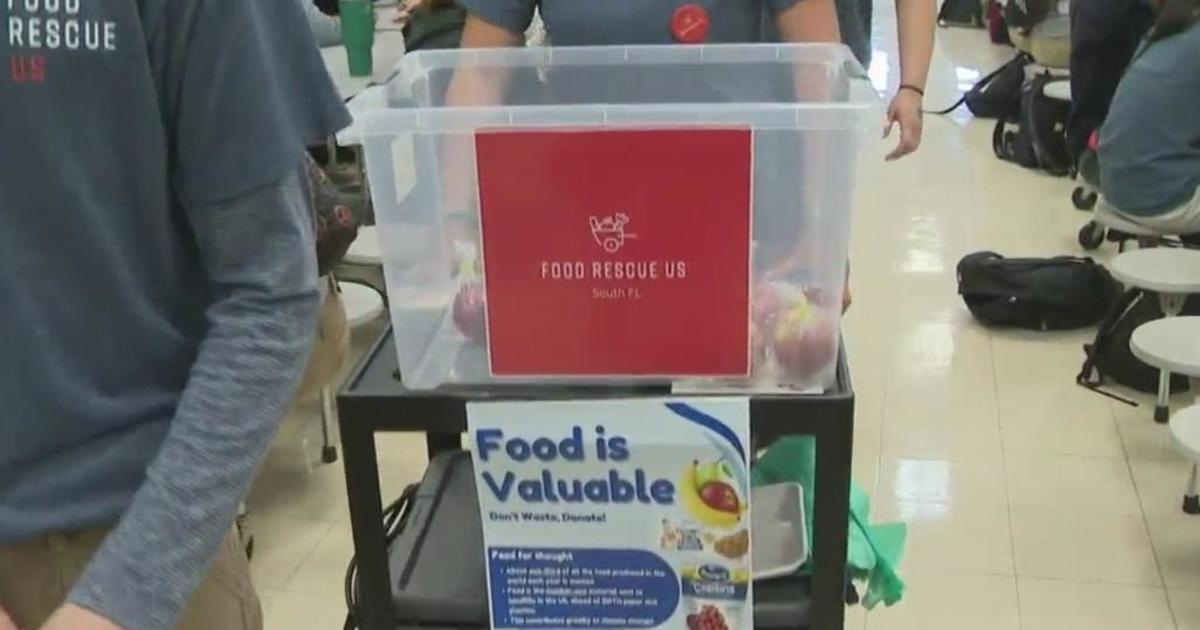Woman Claims Removing Plastic From Diet Led To Increased Weight Loss
MIAMI (CBSMiami) - One secret to weight loss could be as simple as saying "no" the next time you're at a cash register.
Scientists say the plastics in receipts, bottles and even cars could be making all of us fat.
At 240 pounds, Laura Newman was a far cry from the bride who walked down the aisle. Once a size 10, she'd grown to a size 20.
"The more you hate yourself, the more you eat, the more you feel trapped, and helpless, and hopeless," said Newman.
Then last year, Newman said she stopped feeling sorry for herself. She got on a weight loss program and started coming out to Gibson Ranch, where she went on walks and then eventually started running.
"The weight just started to fall off for me," said Newman.
Newman quickly shed 80 pounds. Then a few months into her diet and exercise routine, she noticed that no matter how much she pushed, her body stopped responding.
"I had plateaued," said Newman.
As part of her weight loss program, Newman kept a journal of everything she ate, and how the food made her feel. That's where Newman said she thought she found exactly what was slowing down her weight loss, and it wasn't food.
"I realized, 'wait a minute, you're ingesting quantities of this stuff all the time'," said Newman.
The vegetables steamed in a bag, the canned tuna, the sports drinks, even the water from the office water cooler exposed her to one common ingredient, plastic. When she decided to cut plastics out of her diet, she said the changes were dramatic.
"I lost about 40 pounds in about a blink of an eye," she said.
"That's something scientists are really interested in looking at right now," said Kim Harley, a Berkeley adjunct professor of Public Health.
Harley is familiar with the theory that plastics may play a role in our country's obesity crisis.
"We really need to look into what we're seeing in rats is also happening in humans," said Harley.
Research already shows pregnant mice exposed to plastics made with BPA, short for Bisphenol A, give birth to mice that become overweight later in life.
"BPA is one of the largest production volume chemicals in the world. This is a chemical used in a lot of things," said Harley. "BPA comes from the linings of cans, plastic food containers and water bottles, and it comes from receipts that you get at the store."
In fact, BPA is known as an obesogen, a term coined by a UC Irvine professor looking into whether industrial pollutants like BPA leech into foods, slow metabolism and cause fat cells to multiply.
"There's a pretty compelling theory that exposure to some of these chemicals in-utero may actually have long term health effects that we may not see until adulthood," said Harley.
While scientists are researching that theory, they do agree that people should avoid certain plastics more than others.
Which ones should be avoided?
Well, the answer is in the number inside that triangle you'll find on plastics. They range from one to seven, seven being the worst, with those plastics made with BPA.
"Studies have shown that BPA leeches out of plastic water bottles, even using cold liquids," said Harley.
"I pretty much eliminated most of that stuff out of my life," said Newman.
But Newman said she doesn't need a scientist to convince her, cutting plastics helped bring her down to a size four.
"My guess is that it is like carcinogens, not every person who smokes two packs a day ends up with cancer, some of that is genetics," she said.
Nearly two years after that first walk at Gibson Ranch, Newman took on a 10K race and crossed the finished line.
"I feel better now than I did as a teenager," Newman said.
While the studies are not yet conclusive, scientists say the evidence is very strong that those chemicals are affecting our long-term weight gain.
So why not ban those chemicals?
In July, the U.S. Food and Drug Administration did ban BPA in baby bottles and children's drinking cups, but there are no laws that limit the chemicals used to make plastics.



